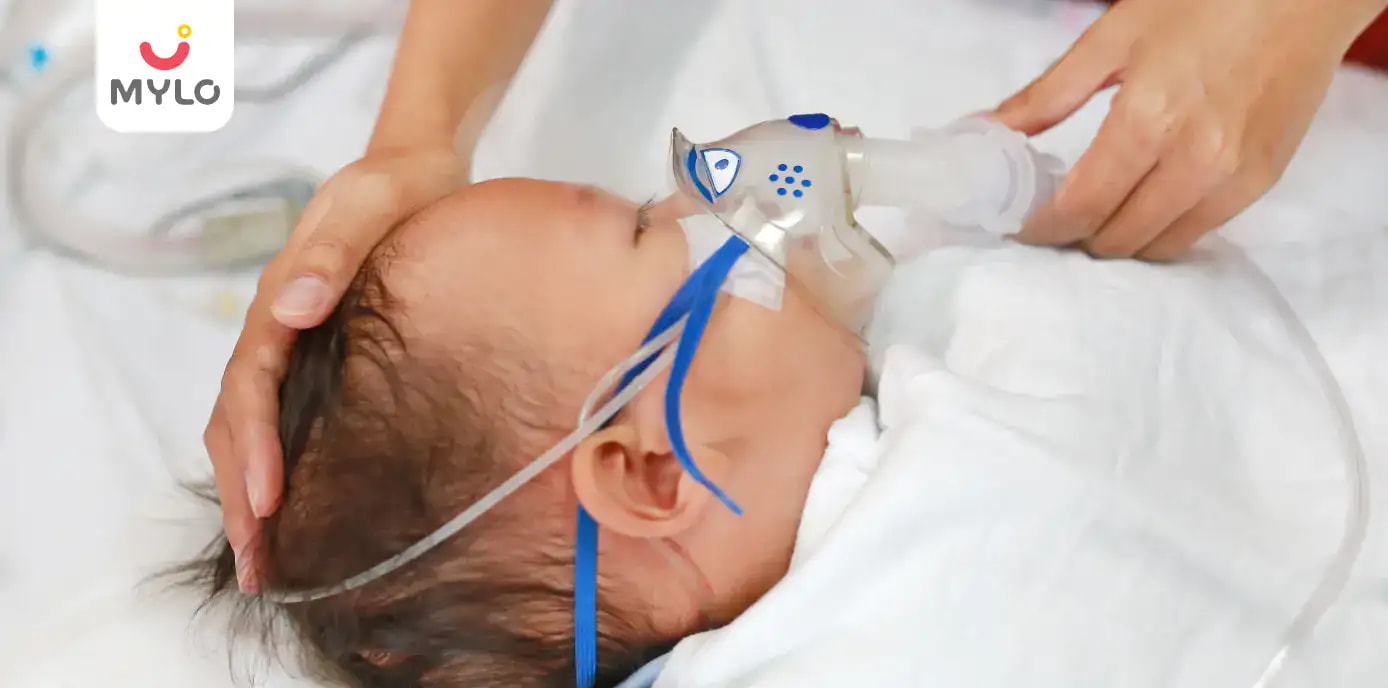Home

Developmental Disorders

Caring for a baby with Down syndrome
In this Article

Developmental Disorders
Caring for a baby with Down syndrome
Updated on 29 January 2022
Infants with Down syndrome have low muscle tone and are at risk for other health problems, which can add to the complexity of newborn care. These tips can help.
Sleeping. Children with Down syndrome often have an enlarged tongue with poor muscle tone. When they sleep, the tongue may fall into the back of the throat. This can lead to obstructive sleep apnea, a condition that causes someone to stop breathing for very short periods of time. Nearly 45 percent of children with Down syndrome suffer from obstructive sleep apnea (enlarged tonsils and adenoids also are to blame).
Reaching Milestones. Down syndrome affects kids' ability to learn in different ways. Most have mild to moderate intellectual impairment. Because the first years of life are so critical for a child's future development, all babies born with Down syndrome are eligible for free early intervention services via the federally mandated Individuals with Disabilities Education Act (IDEA). These include physical therapy (to bolster motor skills and improve muscle tone); speech-language therapy (to heighten listening and speaking skills, as well as help with swallowing problems); and occupational therapy (to help children master life skills such as feeding and dressing oneself, opening doors, and holding crayons and pencils).
Overall, you can expect your baby to reach the same milestones as her peers -- rolling over, walking, and talking -- but at a delayed pace due to the lack of muscle tone. That's why it's more important to pay attention to the sequence in which your baby reaches milestones (for instance, progressing from sitting unattended to crawling, standing, and then walking) and not her age at the time the milestone is reached.
Managing Your Baby's Health. Babies with Down syndrome tend to have other health complications that may require many visits to pediatric health-care providers. Common problems include:
Some heart conditions are identified prenatally during ultrasounds. Even if your newborn's heart seems fine, he will still undergo an echocardiogram sometime during his first three months
Your baby may have narrow ear canals and be prone to ear infections. To ensure that your baby's hearing isn't impaired, the AAP recommends hearing screenings every six months starting at birth and continuing to age 3
More than half of people with Down syndrome have some type of eye problem. In infants, the problems can range from mild (blocked tear ducts) to serious (cataracts). Even children with no known vision problems should see a pediatric ophthalmologist every one to two years.
Hirschsprung disease, an intestinal nerve condition that makes it difficult to expel stools, affects between 2 and 15 percent of infants with Down syndrome. Your baby also has a higher risk for obstructions of the small intestines (which leads to severe vomiting); an improperly connected windpipe and esophagus (this causes frequent choking during feedings); and a closed anal opening. Surgery is required for any of these conditions.
Malfunctioning thyroid. The thyroid gland doesn't function properly in about 10 percent of children with Down syndrome. Your baby will be screened for hypothyroidism at birth and at least every two years. If her thyroid is malfunctioning, medication can help.



Written by
Ravish Goyal
Official account of Mylo Editor
Read MoreGet baby's diet chart, and growth tips

Related Articles
RECENTLY PUBLISHED ARTICLES
our most recent articles

General Father
How To Be A Supportive Husband To Your Partner During Childbirth

General Father
Top travel tips you must consider for experiencing an unforgettable Babymoon

Immune System
Difference between viral infection and bacterial infection and what to do if your kid catches one

Illnesses & Infections
What to do if my child has measles?

Fasting
Pregnant ladies and new moms: what to eat and what not to eat while fasting in Navratras
Toys & Gifts
Choosing the right toys for the right age
- Wondering how long should you be tracking your baby's feed? We will help you
- Co-Parenting? Here’s What You Should Be Doing
- Age-Appropriate Toys for Your Little One
- How To Prepare To GO Back To Work After Paternity Leave
- my story....You must read those who are sufferings problems from in-laws families and husband
- Ensure that your home is safe for your baby
- Opting for a water birth? Here's what you need to know
- Tips for New Dads to Make Friends with Other Fathers
- Are You a Millennial Parent? Find Out
- How to Choose a Gynaecologist for Your Pregnant Wife?
- Wheezing in toddlers: How to treat?
- How can steam inhalation help my baby's blocked nose?
- Treatment for Hives in toddlers
- How to cure ringworm in toddlers


AWARDS AND RECOGNITION

Mylo wins Forbes D2C Disruptor award

Mylo wins The Economic Times Promising Brands 2022
AS SEEN IN

- Mylo Care: Effective and science-backed personal care and wellness solutions for a joyful you.
- Mylo Baby: Science-backed, gentle and effective personal care & hygiene range for your little one.
- Mylo Community: Trusted and empathetic community of 10mn+ parents and experts.
Product Categories
baby carrier | baby soap | baby wipes | stretch marks cream | baby cream | baby shampoo | baby massage oil | baby hair oil | stretch marks oil | baby body wash | baby powder | baby lotion | diaper rash cream | newborn diapers | teether | baby kajal | baby diapers | cloth diapers |








